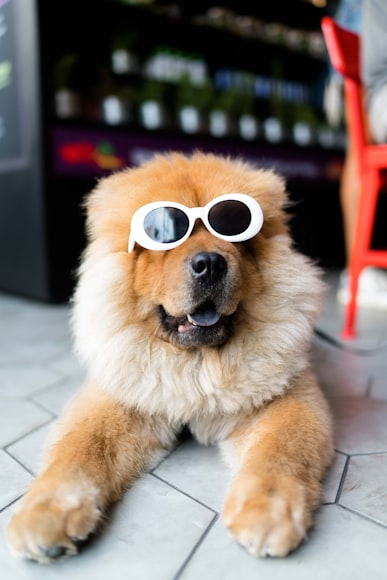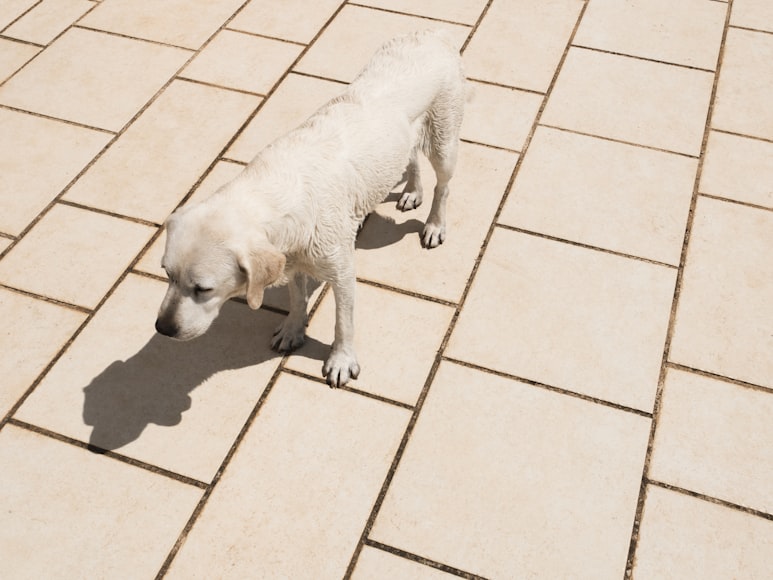How to Stop Diarrhea in Dogs Naturally

Diarrhea can be a common and distressing issue for dogs, causing discomfort, dehydration, and potential health problems. While it’s always advisable to consult with your veterinarian if your dog experiences persistent or severe diarrhea, there are some natural remedies you can try at home to help alleviate the symptoms.
Identify the Underlying Cause
Before treating diarrhea, it’s important to determine the underlying cause. Common triggers include:
- Dietary indiscretion (e.g., eating spoiled food or garbage)
- Parasites
- Infections (e.g., bacteria, viruses)
- Inflammatory bowel disease (IBD)
- Allergies
- Stress
If you suspect any of these underlying causes, seek veterinary attention promptly.
Natural Remedies for Diarrhea
1. Pumpkin Puree
Pumpkin is a natural source of fiber, which can help bulk up stools and slow down diarrhea. It also contains enzymes that can aid in digestion. Offer 1-2 tablespoons of pure pumpkin puree mixed into your dog’s food twice daily.
2. White Rice
White rice is a bland and easily digestible carbohydrate that can help firm up stools. Cook rice without salt or flavorings and offer 1/2 cup to 1 cup per day, mixed with plain yogurt or pumpkin puree.
3. Cottage Cheese
Cottage cheese is a low-fat protein source that can help soothe the digestive tract and firm up stools. Offer 1/4 to 1/2 cup of plain, unsalted cottage cheese once or twice daily.
4. Chicken Broth
Chicken broth is a low-fat, nutritious liquid that can help replenish electrolytes and hydrate your dog. Offer 1 cup of unsalted chicken broth every few hours.
5. Yogurt
Yogurt contains probiotics, which are beneficial bacteria that can help restore balance to the gut microbiome. Offer 1-2 tablespoons of plain, unsweetened yogurt daily.
6. Parsley
Parsley is a natural diuretic that can help reduce dehydration. Add a few chopped parsley leaves to your dog’s food or sprinkle it on top of yogurt.
7. Fennel Seeds
Fennel seeds have anti-inflammatory and antimicrobial properties that can help soothe the digestive tract and reduce diarrhea. Steep 1 tablespoon of fennel seeds in 1 cup of boiling water for 10 minutes. Cool and offer your dog 1/4 cup of the tea twice daily.
Cautionary Notes
- Avoid giving your dog dairy products if they are lactose intolerant.
- Do not overuse natural remedies, as some can have adverse effects in large amounts.
- If your dog’s diarrhea persists for more than 24 hours, worsens, or is accompanied by other symptoms such as vomiting, lethargy, or blood in the stools, seek veterinary attention.
- Some natural remedies may interact with medications, so consult with your veterinarian before giving them to your dog.
Conclusion
While these natural remedies can help alleviate diarrhea in dogs, it’s important to remember that they are not a substitute for veterinary care. If your dog experiences persistent or severe diarrhea, do not hesitate to seek professional assistance. By following these tips and consulting with your veterinarian, you can help your furry friend overcome diarrhea and maintain a healthy digestive system.
Identify the Cause:

Diarrhea, characterized by loose or watery stools, is a common digestive issue in dogs that can be caused by various factors. While veterinary care is always recommended for severe or persistent diarrhea, there are natural remedies that may help alleviate the condition. Here’s a guide to stopping diarrhea in dogs naturally:
1. Identify the Cause
Before attempting any home treatments, it’s crucial to determine the underlying cause of the diarrhea. Common causes include:
- Diet changes: Abrupt changes in diet, such as switching to a new type of food or introducing new treats, can upset the dog’s digestive system.
- Infections: Bacterial or viral infections, such as parvovirus or salmonella, can cause severe diarrhea.
- Parasites: Intestinal parasites, such as roundworms or whipworms, can also lead to diarrhea.
- Stress: Anxiety or stress can trigger diarrhea in some dogs.
2. Bland Diet
Restricting your dog’s diet to bland and easily digestible foods can help soothe the digestive tract. Offer boiled chicken, white rice, or sweet potatoes without any seasonings or additives. This bland diet allows the digestive system to rest and recover.
3. Probiotics
Probiotics are live bacteria that support the growth of beneficial bacteria in the gut. Supplementing your dog’s diet with probiotics can help restore the natural balance of intestinal flora, which can reduce diarrhea. You can find probiotic supplements specifically designed for dogs at pet stores or online.
4. Pumpkin
Pumpkin is a natural source of fiber and has a soothing effect on the digestive tract. Adding a small amount of canned pure pumpkin (not pumpkin pie filling) to your dog’s food can help firm up stools and reduce diarrhea.
5. Electrolyte Replenishment
Diarrhea can lead to dehydration, so it’s important to ensure your dog is getting enough fluids. Offer plenty of fresh water and consider using electrolyte solutions specifically formulated for dogs, such as Pedialyte or Gatorade for pets.
6. Rest
Give your dog plenty of rest to allow the digestive system to recover. Avoid strenuous activity or exercise that could stress the body further.
7. Stress Reduction
If stress is a contributing factor, try to identify and address any triggers that may be causing anxiety. Provide your dog with a safe and comfortable environment and engage in calming activities, such as gentle massages or playing soothing music.
When to Seek Veterinary Care
While home remedies may provide temporary relief, it’s essential to seek veterinary attention if:
- The diarrhea persists for more than 24 hours.
- The stools contain blood, mucus, or foul-smelling material.
- The dog is vomiting, lethargic, or experiencing abdominal pain.
- The dog is a puppy or elderly.
Diarrhea can be a symptom of underlying health conditions that require professional medical attention. Your veterinarian will perform diagnostic tests to determine the cause and recommend appropriate treatment.
Conclusion
Diarrhea in dogs can be a common but concerning issue. By understanding the underlying cause, providing a bland diet, supplementing with probiotics, and offering home remedies such as pumpkin and electrolyte replenishment, you can help alleviate the condition naturally. However, it’s important to seek veterinary care if diarrhea persists or becomes severe to rule out underlying health problems.
Rest and Hydration:

Diarrhea is a common problem in dogs, often caused by a variety of factors such as dietary indiscretion, stress, parasites, or underlying medical conditions. While mild cases may resolve on their own within a few days, persistent diarrhea can be debilitating and even life-threatening if left untreated.
Here’s a comprehensive guide on how to stop diarrhea in dogs naturally:
1. Rest and Hydration:
- Rest is crucial for dogs with diarrhea to conserve energy and allow their digestive system to recover.
- Provide your dog with a quiet, comfortable place to rest and avoid excessive activity.
- Ensure they stay hydrated by offering plenty of fresh water. If they’re reluctant to drink, try using a syringe or dropper to administer small amounts into their mouth.
2. Diet Modifications:
- Fasting: Withhold all food for 12-24 hours to give the digestive tract a break. This can help reduce inflammation and excessive bowel movements.
- Bland Diet: After fasting, introduce a bland diet to minimize further irritation of the digestive system. This typically includes low-fat boiled chicken or white rice. Feed small, frequent meals (every 6-8 hours) to avoid overwhelming the stomach.
3. Natural Remedies:
- Pumpkin Puree: Pumpkin is a natural source of fiber that helps bind stools and reduce diarrhea. Mix 1-2 tablespoons of unsweetened pumpkin puree into your dog’s food.
- Probiotics: Probiotics are beneficial bacteria that support the digestive health of dogs. They can help restore the balance of gut flora and reduce diarrhea.
- Slippery Elm: This herb has soothing properties that can coat and protect the digestive tract, reducing irritation and diarrhea. Mix 1/2-1 teaspoon of slippery elm powder into your dog’s food or water.
- Chamomile Tea: Chamomile is a mild sedative that can help calm the digestive tract and reduce inflammation. Brew a cup of chamomile tea and let it cool before offering it to your dog in small amounts.
4. Medical Intervention:
If diarrhea persists for more than 24 hours, worsens, or is accompanied by other symptoms (e.g., vomiting, lethargy), it’s essential to consult a veterinarian. They can determine the underlying cause of the diarrhea and provide appropriate treatment. This may include:
- Antibiotics (if caused by bacterial infection)
- Antiparasitic medication (if caused by parasites)
- Anti-diarrheal medication (to stop diarrhea temporarily)
- IV fluids (if severe dehydration is present)
5. Prevention:
To prevent diarrhea in dogs, follow these tips:
- Feed your dog a high-quality diet that’s appropriate for their age and activity level.
- Avoid sudden changes in diet.
- Keep your dog away from potential sources of infection, such as contaminated food or water.
- Ensure your dog receives regular deworming and vaccinations.
- Reduce stress levels by providing a safe and comfortable environment.
Caution:
- Never give human diarrhea medication to dogs without consulting a veterinarian.
- If your dog’s diarrhea contains blood, mucus, or has a foul odor, seek veterinary attention immediately.
- Do not use home remedies as a substitute for veterinary care for severe or persistent diarrhea.
Fast for 12-24 Hours:

Diarrhea, characterized by frequent, loose, or watery stools, is a common issue among dogs. While it can be a temporary inconvenience, chronic or severe diarrhea can lead to dehydration, electrolyte imbalances, and other health problems. Fortunately, there are several natural remedies that can effectively help stop diarrhea in dogs.
1. Fast for 12-24 Hours:
Allowing your dog’s digestive system to rest can help mitigate diarrhea. Withhold food for 12-24 hours, but ensure they have access to plenty of fresh water to prevent dehydration.
2. Bland Diet:
After the fasting period, introduce a bland diet composed of easily digestible foods like white rice, cooked chicken (without skin or bones), boiled potatoes, or oatmeal. These foods provide essential nutrients without irritating the digestive tract.
3. Probiotics:
Probiotics, beneficial bacteria that live in the intestines, support digestive health. Supplements or foods containing probiotics, such as live-cultured yogurt or kefir, can help repopulate the intestinal flora and reduce diarrhea.
4. Enteric Adsorbents:
Activated charcoal or kaolin can act as enteric adsorbents, binding to toxins and reducing diarrhea. Follow the pet-specific dosage instructions carefully.
5. Slippery Elm:
Slippery elm is a natural plant that soothes and protects the digestive tract. It can be given to dogs in capsule form or mixed with water to create a thick, soothing paste.
6. Ginger:
Ginger has anti-nausea and anti-inflammatory properties that can help alleviate diarrhea. Offer your dog a small piece of raw ginger or brewed ginger tea.
7. Peppermint:
Peppermint is a natural antispasmodic that can help reduce intestinal spasms and diarrhea. Offer your dog peppermint tea or a few drops of diluted peppermint extract in water.
8. Pumpkin:
Pumpkin is rich in fiber and has a gentle laxative effect. It can help regulate bowel movements and provide nutrients during diarrhea.
9. Carrots:
Carrots are also high in fiber and can help firm up stools. Offer your dog boiled or steamed carrots as a snack or supplement to their bland diet.
10. Avoid Certain Foods:
Dairy products, fatty foods, and processed foods can aggravate diarrhea. Avoid feeding these items to your dog during and after an episode.
Additional Tips:
- Keep your dog well-hydrated by offering plenty of fresh water.
- Confine your dog to prevent them from consuming unsafe substances.
- Monitor your dog’s condition and seek veterinary attention if the diarrhea persists or worsens, there is vomiting, or your dog appears lethargic or in pain.
Prevention:
To prevent diarrhea in dogs, ensure they have a healthy diet, regular exercise, and proper deworming and vaccination schedules. Keep toxic substances out of reach and avoid abrupt changes to their diet or environment.
Remember, these natural remedies are not a substitute for veterinary care. If your dog’s diarrhea is severe, persistent, or accompanied by other symptoms, seek professional veterinary advice promptly.
Gradual Reintroduction of Food:

Diarrhea is a common health problem in dogs, and it can be caused by various factors, including dietary indiscretion, infections, and stress. While diarrhea can often resolve on its own within a few days, it can be distressing for the dog and may lead to dehydration if left untreated.
If your dog is experiencing diarrhea, there are several natural remedies you can try to help stop it. Here are some effective ways:
1. Fasting:
- Withhold all food for 12-24 hours to allow the digestive system to rest.
- This can help reduce inflammation and give the gut time to recover.
2. Hydration:
- Dehydration is a major concern with diarrhea, so it’s crucial to ensure your dog stays hydrated.
- Offer plenty of fresh water or electrolyte solutions to help replenish lost fluids.
3. Bland Diet:
- Once you reintroduce food, start with small amounts of a bland diet.
- This may include boiled chicken or white rice, which are easy to digest.
- Gradually increase the amount of food as tolerated.
4. Probiotics:
- Probiotics are beneficial bacteria that help restore the balance in the gut and promote healthy digestion.
- Give your dog a probiotic supplement or offer fermented foods like yogurt (plain, unsweetened).
5. Pumpkin Puree:
- Canned pumpkin puree is rich in fiber, which can help solidify stools and reduce diarrhea.
- Add a few tablespoons to your dog’s food as needed.
6. Slippery Elm Bark:
- This herb has soothing properties that can help reduce inflammation in the digestive tract.
- Mix 1 teaspoon of slippery elm bark powder with water and give it to your dog twice a day.
7. Apple Cider Vinegar:
- Apple cider vinegar can help restore the pH balance in the gut and support digestion.
- Add 1-2 teaspoons to your dog’s water bowl twice a day.
8. Yogurt:
- Plain, unsweetened yogurt contains probiotics and can help soothe the digestive tract.
- Feed your dog 1-2 tablespoons per day.
9. Chamomile Tea:
- Chamomile has calming effects that can help reduce inflammation and soothe diarrhea.
- Brew a cup of chamomile tea and let it cool. Add 1-2 tablespoons to your dog’s water bowl.
10. Marshmallow Root:
- Marshmallow root has mucilaginous properties that can help coat and protect the digestive tract.
- Boil 1 tablespoon of marshmallow root in 1 cup of water for 5 minutes. Strain and give your dog 1-2 tablespoons twice a day.
When to Seek Veterinary Care:
- While these natural remedies can be effective, it’s essential to seek veterinary care if your dog’s diarrhea:
- Lasts for more than 2 days
- Is bloody or contains mucus
- Is accompanied by vomiting or other symptoms
- Your dog is lethargic or not eating
Veterinary care is crucial to determine the underlying cause and prescribe appropriate treatment.
Prevention:
To prevent diarrhea in dogs, focus on:
- Feeding a high-quality diet
- Avoiding sudden changes in diet
- Providing plenty of clean water
- Vaccinating against common gastrointestinal infections
- Managing stress and anxiety
By following these tips, you can help keep your dog healthy and free from diarrhea.
Probiotics:
Diarrhea in dogs can be a common and frustrating issue for pet owners. While it’s usually not a serious condition, it can cause discomfort and dehydration in your furry friend. If your dog is experiencing diarrhea, there are several natural remedies you can try to help stop it.
1. Fasting:
The first step in treating diarrhea is to fast your dog for 12-24 hours. This will give their digestive system a chance to rest and settle down. During this time, make sure your dog has access to plenty of fresh water to prevent dehydration.
2. Bland Diet:
After the fasting period, start your dog on a bland diet. This type of diet is easy on the stomach and helps reduce diarrhea. Some bland food options for dogs include:
- Boiled chicken or turkey
- White rice
- Plain yogurt
- Pumpkin puree (unsweetened)
3. Electrolytes:
Diarrhea can lead to dehydration, which can be dangerous for dogs. To prevent dehydration, give your dog electrolyte solutions to replace lost electrolytes. You can purchase electrolyte solutions at your local pet supply store or online.
4. Probiotics:
Probiotics are beneficial bacteria that help keep the digestive system healthy. Supplementing your dog’s diet with probiotics can help restore the balance of beneficial bacteria in their gut and reduce diarrhea. You can find probiotics in over-the-counter supplements or in certain dog foods.
5. Marshmallow Root:
Marshmallow root is a natural remedy that has been used for centuries to treat diarrhea. It contains mucilage, a substance that forms a protective coating over the intestinal lining, which can help reduce inflammation and diarrhea.
6. Slippery Elm Bark:
Slippery elm bark is another natural remedy that can help soothe and heal the digestive tract. It contains mucilage, tannins, and other compounds that can help reduce inflammation and diarrhea.
7. Apple Cider Vinegar:
Apple cider vinegar is a natural antibacterial and antifungal agent. It can help balance the pH of the digestive tract and reduce diarrhea. Mix 1-2 teaspoons of apple cider vinegar in a bowl of water and give it to your dog twice a day.
8. Pumpkin Puree:
Pumpkin puree is a great source of fiber, which can help firm up stools and reduce diarrhea. It also contains beta-carotene, an antioxidant that helps support the immune system.
9. Bone Broth:
Bone broth is a nutritious and soothing liquid that can help hydrate your dog and provide essential nutrients. It also contains gelatin, which can help protect the intestinal lining.
10. Rest:
Rest is essential for dogs recovering from diarrhea. Make sure your dog has a quiet and comfortable place to rest. Avoid strenuous activity, as this can further aggravate their condition.
If your dog’s diarrhea persists for more than 24 hours or if they show signs of dehydration, lethargy, or vomiting, it’s important to seek veterinary care. These could be signs of an underlying medical condition that requires treatment.
Remember, preventing diarrhea is always better than treating it. By feeding your dog a healthy diet, providing them with plenty of clean water, and practicing good hygiene, you can help keep their digestive system healthy and reduce the risk of diarrhea.
Pumpkin:
Diarrhea, characterized by loose and watery stools, is a common ailment in dogs that can cause discomfort, dehydration, and even serious health complications if left untreated. While veterinary care is always recommended for persistent or severe diarrhea, there are several natural remedies that can help alleviate symptoms and promote healing.
1. Pumpkin: The Fiber-Rich Remedy
Canned pumpkin, not pumpkin pie filling, is a natural source of soluble fiber, which adds bulk to stools and helps firm them up. The beta-carotene in pumpkin also has anti-inflammatory properties that can soothe the irritated digestive tract. Offer your dog 1-2 tablespoons of canned pumpkin per 10 pounds of body weight twice a day.
2. Plain White Rice: A Bland and Binding Option
Plain white rice is a bland and easily digestible food that helps bind stools and absorb excess fluid. Boil 1 cup of rice in 2 cups of water until soft and fluffy. Let it cool and offer it to your dog in small portions throughout the day.
3. Yogurt: A Probiotic Powerhouse
Yogurt contains beneficial bacteria, or probiotics, which help restore the balance of gut flora and support digestive health. Offer your dog plain, unsweetened yogurt with live active cultures. Start with a small amount and gradually increase to 1-2 tablespoons per day.
4. Sweet Potatoes: A Gentle Fiber Source
Sweet potatoes are a good source of soluble fiber, as well as vitamins and minerals. They are also easy to digest and can help soothe inflammation in the digestive tract. Boil or bake sweet potatoes until tender and mash or puree them. Offer small amounts to your dog twice a day.
5. Ginger: An Anti-Nausea Soother
Ginger has anti-nausea properties that can help calm the stomach. Add a small amount of grated fresh ginger (about 1/4 teaspoon per 10 pounds of body weight) to your dog’s food or water.
6. Chamomile Tea: A Calming and Anti-Inflammatory Brew
Chamomile tea has calming and anti-inflammatory properties that can soothe the digestive tract. Brew a cup of chamomile tea and let it cool. Offer your dog a few tablespoons several times a day.
7. Slippery Elm: A Mucilaginous Remedy
Slippery elm is a herb that contains mucilage, a substance that forms a protective coating on the digestive tract. This helps soothe irritation and reduce inflammation. Mix 1-2 tablespoons of slippery elm powder with warm water to form a paste. Offer the paste to your dog several times a day.
8. Avoid Dairy and Fatty Foods
Dairy products and fatty foods can worsen diarrhea. Stick to a bland diet of easily digestible foods such as plain white rice, boiled chicken, and pumpkin.
9. Keep Your Dog Hydrated
Diarrhea can lead to dehydration, so it is crucial to keep your dog well-hydrated. Offer plenty of fresh, clean water throughout the day. You can also offer them electrolyte solutions designed for dogs.
10. Monitor Your Dog’s Symptoms
If your dog’s diarrhea persists for more than 24 hours, worsens, or is accompanied by other symptoms such as vomiting, lethargy, or abdominal pain, seek veterinary attention immediately.
Caution:
Before administering any home remedies to your dog, consult with your veterinarian to ensure they are safe and appropriate for your pet. Some herbs and supplements can interact with medications or underlying health conditions.
Conclusion:
Diarrhea in dogs can be an unpleasant and potentially serious condition. Fortunately, there are several natural remedies that can help alleviate symptoms and promote healing. By following these tips and consulting with your veterinarian if necessary, you can help your furry friend recover from diarrhea and maintain optimal digestive health.
Yogurt:
Diarrhea, characterized by loose, watery stools, is a common issue among dogs. While it can be a temporary inconvenience, persistent diarrhea can be a sign of underlying medical conditions. Fortunately, there are several natural remedies that can help stop diarrhea in dogs.
1. Yogurt:
Plain yogurt, particularly Greek yogurt, is a natural source of probiotics. Probiotics are beneficial bacteria that help restore the balance of the gut microbiome, which can alleviate diarrhea. Incorporate a small amount of plain yogurt into your dog’s diet to help firm up their stools.
2. Pumpkin:
Canned pumpkin is rich in fiber, which can help absorb excess water in the digestive tract and provide bulk to stools. Mix a tablespoon or two of pureed pumpkin into your dog’s food to help slow down the diarrhea.
3. Rice Water:
Boiled rice is bland and easily digestible, making it a suitable food for dogs with diarrhea. Cook rice without seasonings and allow it to cool. Boil the rice for approximately 5-10 minutes to create a starchy liquid known as rice water, which can help soothe the digestive tract and bind stools.
4. Oatmeal:
Similar to rice, oatmeal is a gentle and absorbent food that can help stop diarrhea. Prepare oatmeal without sugary additives or milk and let it cool. Blend the oatmeal until smooth and feed it to your dog in small portions.
5. Sweet Potato:
Boiled sweet potato is high in soluble fiber and can help bind stools and improve digestion. Peel and boil sweet potatoes until tender and mash them into a puree. Add small amounts to your dog’s food to help firm up their stools.
6. Cottage Cheese:
Cottage cheese is another good source of probiotics and can help restore the balance of the gut microbiome. Feed your dog a small amount of plain cottage cheese to help soothe their digestive tract and improve stool consistency.
7. Chamomile Tea:
Chamomile tea has anti-inflammatory and antispasmodic properties that can help calm the digestive tract and alleviate diarrhea. Brew a cup of chamomile tea and allow it to cool. Add a small amount to your dog’s water bowl or offer it as a warm drink to help soothe their digestive discomfort.
8. Slippery Elm:
Slippery elm is a natural anti-inflammatory that can coat the digestive tract and reduce irritation. Mix a teaspoon of slippery elm powder into a small amount of water and feed it to your dog to help soothe the digestive tract and firm up stools.
Important Precautions:
Before using any natural remedies to treat diarrhea in your dog, consult with your veterinarian. Certain natural remedies may not be suitable for dogs with underlying medical conditions or allergies. Additionally, it is crucial to address the underlying cause of the diarrhea to prevent it from recurring.
If your dog’s diarrhea persists for more than a day or two, exhibits signs of blood or mucus, or is accompanied by other symptoms such as vomiting, lethargy, or fever, seek veterinary attention promptly. These symptoms may indicate a more serious underlying health issue.
Chamomile Tea:
Diarrhea is a common but distressing problem that can affect dogs of all ages and breeds. While it’s usually not a serious health concern, it can be uncomfortable and lead to dehydration if left untreated. Fortunately, there are several natural remedies that can help soothe your dog’s digestive system and stop diarrhea effectively.
1. Restrict Water Intake:
Temporary water restriction can help solidify stools and reduce the frequency of diarrhea. However, ensure your dog doesn’t go without water for more than a few hours to prevent dehydration.
2. Offer Clear Fluids:
Clear fluids such as chicken broth, Pedialyte, or diluted apple juice can help replenish electrolytes and prevent dehydration. Avoid sugary drinks, as they can worsen diarrhea.
3. Oatmeal:
Cooked oatmeal is a bland and fiber-rich food that can help soothe the digestive tract and firm up stools. Mix plain oatmeal with warm water and offer it to your dog in small portions.
4. Pumpkin:
Canned pumpkin is high in soluble fiber, which helps absorb excess water and firm stools. Add a tablespoon or two of plain, unsweetened pumpkin to your dog’s food once or twice a day.
5. Yogurt:
Plain, unsweetened yogurt contains probiotics, beneficial bacteria that can help repopulate the digestive tract and restore balance. Offer your dog a small amount of yogurt once or twice a day.
6. Chamomile Tea:
Chamomile tea has soothing and anti-inflammatory properties. Brew chamomile tea and offer it to your dog to help soothe their stomach and reduce inflammation.
7. White Rice:
Cooked white rice is another bland food that can help bind stools and reduce diarrhea. Mix cooked white rice with plain chicken or fish and offer it to your dog in small amounts.
8. Bananas:
Bananas are rich in potassium, which can help replace electrolytes lost through diarrhea. Offer your dog a small piece of ripe banana as a snack or add it to their food.
9. Kefir:
Kefir is a fermented milk drink that contains probiotics. It can help restore balance to the digestive tract and reduce inflammation. Offer your dog a small amount of plain, unsweetened kefir once or twice a day.
10. Slippery Elm Bark:
Slippery elm bark is a soothing and demulcent herb that can help coat the digestive tract and reduce inflammation. Mix a teaspoon of slippery elm bark powder into water and offer it to your dog as a drink.
When to Seek Veterinary Help:
While these natural remedies can be effective in stopping diarrhea in most cases, it’s important to seek veterinary help if your dog’s diarrhea:
- Persists for more than 24 hours
- Is accompanied by other symptoms such as vomiting, lethargy, or loss of appetite
- Contains blood or mucus
- Is accompanied by fever
- Your dog appears dehydrated
Conclusion:
Diarrhea in dogs can be uncomfortable and concerning, but it can be effectively managed with natural remedies. By restricting water intake, offering clear fluids, and providing bland foods like oatmeal, pumpkin, and yogurt, you can help soothe your dog’s digestive tract and promote recovery. If diarrhea persists or is accompanied by other concerning symptoms, don’t hesitate to consult with your veterinarian.
Activated Charcoal:
Diarrhea is a common problem among dogs, causing discomfort, dehydration, and electrolyte imbalances. While veterinary attention is essential for severe or persistent cases, there are numerous natural remedies that can help alleviate symptoms and promote recovery. This comprehensive guide will explore a range of natural solutions to stop diarrhea in dogs effectively.
Dietary Modifications:
- Fasting: Restricting food for 12-24 hours can give the digestive system a chance to rest and reduce stool frequency.
- Bland Diet: Once fasting, gradually introduce a bland diet consisting of boiled chicken, white rice, or sweet potato. These foods are easy to digest and provide essential nutrients.
Hydration:
- Electrolyte Solution: Dehydration is a major concern during diarrhea. Offer your dog a homemade electrolyte solution made with 1 liter of water, 1/4 teaspoon of salt, and 1/4 teaspoon of baking soda.
- Pedialyte: Commercially available electrolyte solutions like Pedialyte can also be used to replenish lost fluids and electrolytes.
Supplements and Herbs:
- Probiotics: Beneficial bacteria in probiotics can help restore balance to the gut microbiome, which is essential for healthy digestion. Consider giving your dog a dog-specific probiotic supplement.
- Slippery Elm Bark: This natural herb has soothing and anti-diarrheal properties. It can be mixed with water or food to create a thick gel that coats the gastrointestinal tract.
- Marshmallow Root: Another soothing herb, marshmallow root helps reduce inflammation and protect the digestive lining. It can be brewed into a tea or given in capsule form.
Activated Charcoal:
Consider giving your dog activated charcoal, which can absorb toxins and help bind loose stools. It is particularly effective against diarrhea caused by certain types of bacteria or toxins.
Other Natural Remedies:
- Pumpkin Puree: Canned pumpkin puree contains soluble fiber, which can help bulk up stools and reduce diarrhea.
- Psyllium Husk: Similar to pumpkin puree, psyllium husk is a soluble fiber that can help absorb excess moisture from stools.
- Rice Water: The starch in rice water can help bind loose stools and provide temporary relief.
- Ginger: Ginger has anti-inflammatory properties that can help calm the digestive tract. It can be given in grated form or brewed into a tea.
When to Seek Veterinary Attention:
While natural remedies can be effective for mild to moderate cases of diarrhea, it is crucial to seek veterinary attention if:
- Diarrhea persists for more than 24 hours.
- The dog shows signs of dehydration, such as sunken eyes or lethargy.
- Blood or mucus is present in the stool.
- The diarrhea is accompanied by vomiting or fever.
- The dog is a puppy, senior, or has underlying health conditions.
Conclusion:
Diarrhea in dogs can be a distressing experience, but it can often be managed effectively with natural remedies. By implementing dietary modifications, providing adequate hydration, utilizing supplements and herbs, and addressing the underlying cause, you can help your dog recover quickly and maintain a healthy digestive system. However, it is always advisable to consult with a veterinarian for severe or persistent cases to rule out any underlying medical conditions or complications.
























